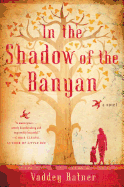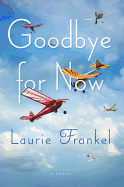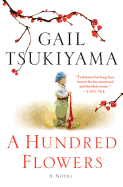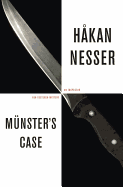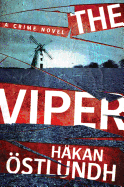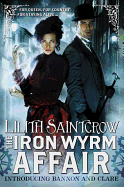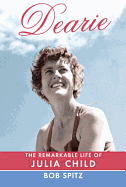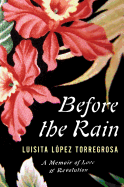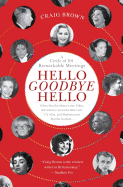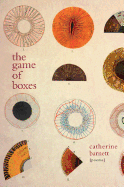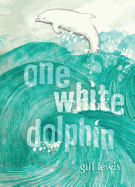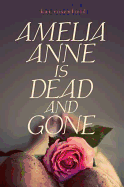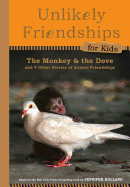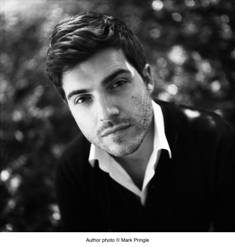 Benjamin Wood was born in 1981 and grew up in a small coastal town in northwest England. He completed an MFA in Creative Writing at the University of British Columbia, Canada, where he served as the fiction editor of the literary journal PRISM international. His debut novel, The Bellwether Revivals, centers on a gifted young organist at Cambridge University who believes he can heal people with his music. It was published by Viking Penguin on June 14, 2012, and is a Barnes & Noble Discover Great New Writers selection.
Benjamin Wood was born in 1981 and grew up in a small coastal town in northwest England. He completed an MFA in Creative Writing at the University of British Columbia, Canada, where he served as the fiction editor of the literary journal PRISM international. His debut novel, The Bellwether Revivals, centers on a gifted young organist at Cambridge University who believes he can heal people with his music. It was published by Viking Penguin on June 14, 2012, and is a Barnes & Noble Discover Great New Writers selection.
On your nightstand now:
I'm halfway through Donald Sturrock's excellent Storyteller: The Authorised Biography of Roald Dahl. This is partly character research for my next book, as I find the lives of inordinately talented people fascinating and I like to see how personal experiences can sometimes inform or steer their creative output. Beyond that, Roald Dahl was a childhood hero of mine--I'm sure I wouldn't be the first author to say that his books inspired me to write my own rhyming poems and strange tales when I was a kid. It's an absorbing exercise to go back as an adult and learn about the man's flaws and eccentricities, his creative process, and comprehend something of the mind which created those beloved stories.
Favorite book when you were a child:
The Thief of Always by Clive Barker. I read this on a family holiday when I was 12. It is a wonderful, dark, creepy adventure story about a kid called Harvey Swick who gets lured into the mysterious house of a man known as Mr. Hood. The house has been standing for thousands of years and, of course, very strange things begin to happen to Harvey the longer he stays there. In the end, he has to battle to extricate himself from the place by defeating the evils of Mr. Hood. It's sort of a fable about not wishing your life away, being grateful for what you have, and it was really one of the first novels I remember being utterly captivated by--a children's book that didn't patronize or insult my intelligence, but which evoked something sinister and adult without being in any way sensational. And I remember the day I finished reading it on the beach: my parents and my brother were swimming in the sea and they kept calling me over, but I just couldn't leave Harvey alone with Mr. Hood. That's the mark of an exceptional story, I think.
 Your top five authors:
Your top five authors:
Oh, heck--only five? I'll have to be ruthless about this: Richard Yates, Tobias Wolff, Truman Capote, Sylvia Plath and Graham Greene. Four of those are American. Only one is still alive. That says a lot about my reading tastes, I think.
Book you've faked reading:
The Hobbit by J.R.R. Tolkien. I was implored to read this at school, as it was mandatory reading for English Literature. In the end, I hated it too much to get beyond a few chapters, and it dawned on me that I could just pretend to have read it, because it wasn't going to be part of the final exam. I have never gotten on very well with Tolkien. Sorry. I know I'm in a very small minority, but his work makes my brain itchy. All that questing and resting. The fact that Tolkien can't even whittle down his own initials tells you a lot about the economy of his prose style.
Book you're an evangelist for:
I sermonize yearly on the sheer elegance and skill of Carson McCullers's writing in The Member of the Wedding. To my mind, it would be hard to better the way she handles the third-person point of view of the book's protagonist, Frankie, as she graduates into adolescence and becomes "F. Jasmine." Also, I keep telling my students about Eric Puchner's Music Through the Floor, but it's not available here in the U.K, so they just shrug back at me. Maybe some clever publisher will bring it out one day, so people can enjoy the brilliance of his story "Essay #3: Leda and the Swan."
Book you've bought for the cover:
Of course, I would never do this. Cough. But, let's pretend--cough--in a moment of weakness--cough--I were to stumble upon a first edition of William Styron's Darkness Visible in a used book store--cough--I might find its cover so alluring that I part with over 30 pounds for it. But that wouldn't happen. Honest. And it would probably turn out to be a thoroughly interesting book anyway, and money well spent.
Book that changed your life:
The New York Trilogy by Paul Auster. I read this when I was an unemployed 20-year-old musician, stuck in the disheartening pursuit of a record deal, and I would say that reading the first novel in the trilogy, City of Glass, made me realize something vital about myself--that some of the things I wanted to say, most of the stories I wanted to tell, could not be contained in the songs I was writing. That novel made me feel seasick with creative possibilities. I had written a lot of fiction as a child, but I'd sort of fallen out of the habit in my teens. That year, I started writing a novel--it was a bad one, but it was a start. If I hadn't read the New York Trilogy when I had, I doubt I would be a novelist today.
Favorite line from a book:
From the short story "Reunion" by John Cheever:
"I knew that when I was grown I would be something like him; I would have to plan my campaigns within his limitations." Still makes me teary.
Book you most want to read again for the first time:
I would love to read William Golding's Lord of the Flies again for the first time, without it being a prescribed text on a school reading list. That way, I could really enjoy it for the wonderful book it is, rather than feel a simmering enmity towards it, and dismiss it to my friends as "a stupid story about some fat kids and a conch." What an idiot.
Book Brahmin: Benjamin Wood
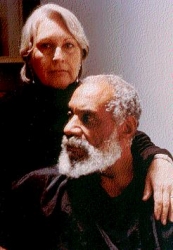 His obituary in the New York Times concentrated on their career as children's book illustrators; Leo Dillon was the first African-American to win the Caldecott, and the Dillons were the first (and only) duo to win the award two years in a row, for Why Mosquitoes Buzz in People's Ears and Ashanti to Zulu. Wikipedia lists 38 picture books and 25 chapter books done over a period of 39 years, and the page hasn't been updated--there are even more. But I remember first discovering the Dillons from their covers for Ace science fiction novels.
His obituary in the New York Times concentrated on their career as children's book illustrators; Leo Dillon was the first African-American to win the Caldecott, and the Dillons were the first (and only) duo to win the award two years in a row, for Why Mosquitoes Buzz in People's Ears and Ashanti to Zulu. Wikipedia lists 38 picture books and 25 chapter books done over a period of 39 years, and the page hasn't been updated--there are even more. But I remember first discovering the Dillons from their covers for Ace science fiction novels.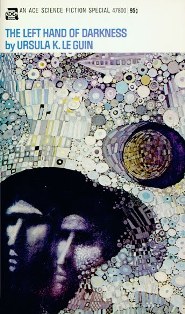 I began with Ursula Le Guin's The Left Hand of Darkness--I was not a science fiction fan, but I couldn't resist the cover. And then Keith Roberts's masterwork Pavane (just reissued by Old Earth Books with the same cover), Harlan Ellison, Joan Vinge, Roger Zelazny--drawn in by the Dillons' art, I explored science fiction. I also embarked on collecting picture books, with the Dillons making up a major percentage or my purchases.
I began with Ursula Le Guin's The Left Hand of Darkness--I was not a science fiction fan, but I couldn't resist the cover. And then Keith Roberts's masterwork Pavane (just reissued by Old Earth Books with the same cover), Harlan Ellison, Joan Vinge, Roger Zelazny--drawn in by the Dillons' art, I explored science fiction. I also embarked on collecting picture books, with the Dillons making up a major percentage or my purchases.




 Your top five authors:
Your top five authors: